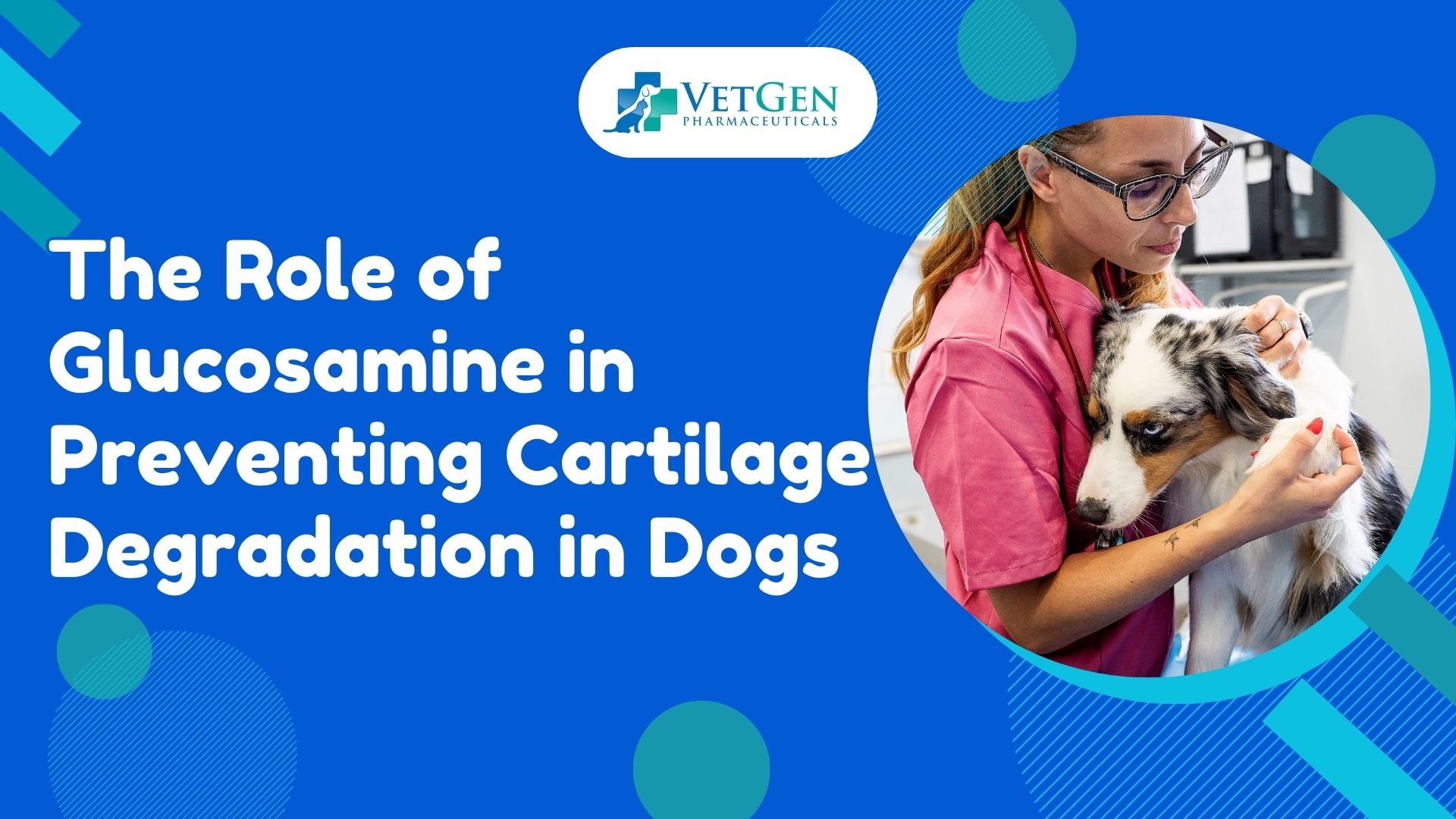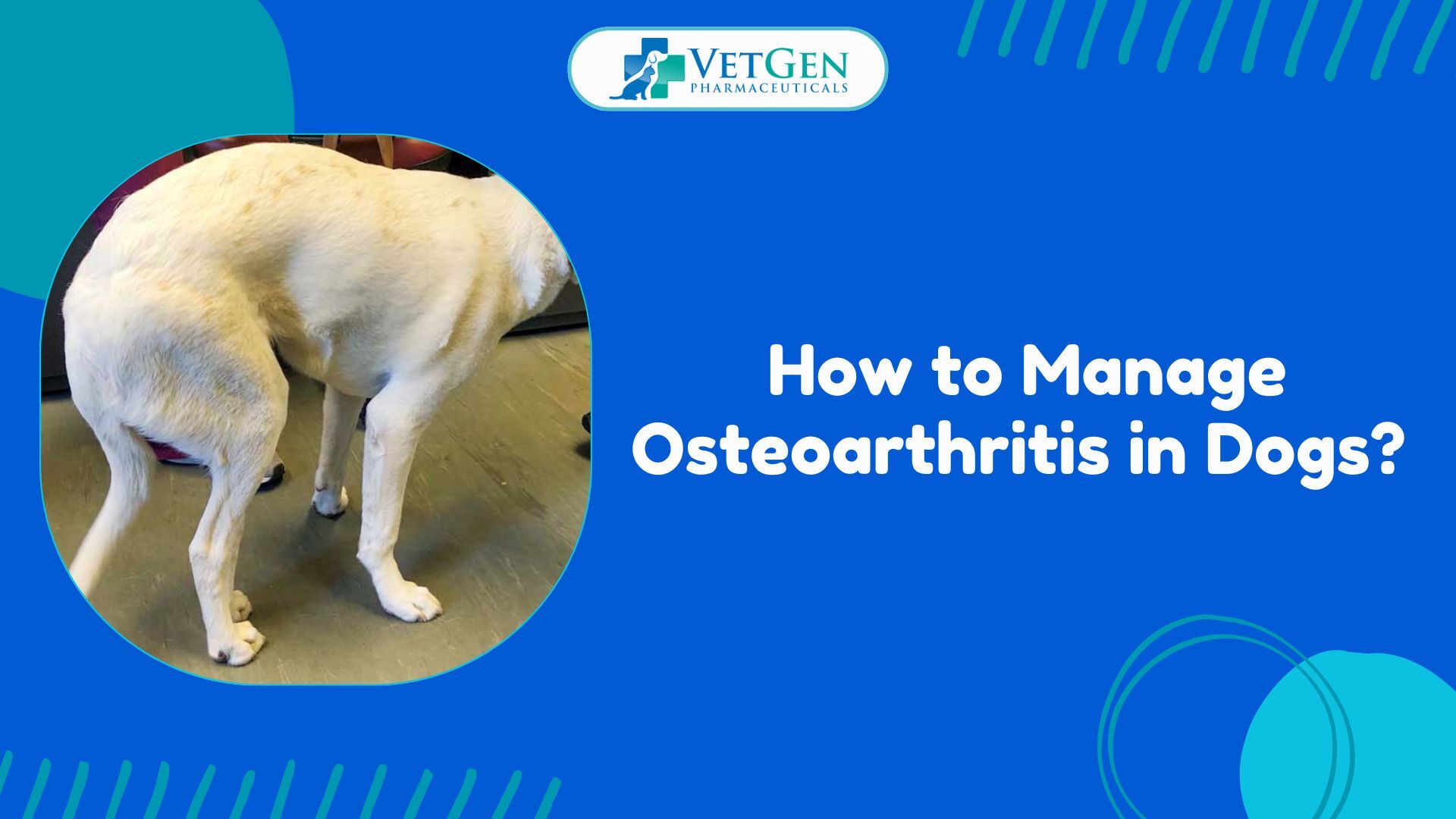A dog’s joints and bones are integral to its movement. Nature has a sophisticated design to protect these components of an animal’s body. One constituent of this design is cartilage, a connective tissue that protects the joints and bones.
Cartilage works as a ‘shock absorber,’ reducing friction between bones moving in close vicinity. It comprises specialized cells called chondrocytes that give the tissue its shape and function.
Age-mediated cartilage degradation is a common concern in dogs, especially breeds susceptible to arthritis. Fortunately, glucosamine can prevent this wear and tear, provided you incorporate it into your pet’s diet early in life.
Here’s a breakdown of the role of glucosamine in preventing canine cartilage degradation.
Why Is Cartilage Important For Dogs?
The importance of cartilage can be understood from the fact that in the absence of this connective tissue, a dog’s bones would rub together every time they move, resulting in premature wear and tear.
Cartilage also has other functions in a dog’s body. Some of them include:
- Enhancing the resilience of bones
- Providing support to the bony areas of the body
- Resisting compressive forces
- Allowing flexible movement of the joints
Age is one of the top reasons for cartilage degradation in dogs. As a dog ages, its body’s collagen production starts to decrease, leading to the breakdown of cartilage. Other factors that may cause cartilage breakdown are blunt trauma, disease, and injury.
Can Dogs Regrow Cartilage? Can Cartilage Grow Back Naturally?
Although it is a tissue, cartilage has a limited ability to regrow itself due to the lack of blood vessels. Osteoarthritis and articular cartilage damage are the common causes of cartilage degeneration in dogs.
Once these conditions damage the cartilage, the tissue rarely repairs itself spontaneously. Instead, regenerative medicines and stem cell therapy help use the animal’s own cells to help in the regeneration process.
Mesenchymal stem cells (MSCs) have garnered much interest in this field. Research shows that injecting these cells into cartilage lesions can result in hyaline cartilage regeneration. MSCs also help alleviate pain and lameness in dogs with osteoarthritis.
Can Damaged Cartilage Repair Itself In Dogs?
Just like it doesn’t regrow, cartilage doesn’t always repair itself either because it is lymphatic, aneural, and avascular. Here’s a clearer explanation.
- Avascular: Blood vessels bring oxygen, circulating cells, and nutrients to the site of damage. Cartilage does not have blood vessels, which are important in a body part’s healing and repair process.
- Aneural: Cartilage doesn’t contain nerves, either. These are important for picking up pain signals and helping the body respond to them.
- Alymphatic: Lymph nodes contain white blood cells that attack viruses, damaged cells, bacteria, and tumors. Meanwhile, the lymph fluid transports waste away from the bone into the bloodstream. Since cartilage lacks lymphatic vessels, it’s unable to drain excess fluid from the area properly.
All these factors contribute to the limited regenerative ability of the cartilage. That’s why external intervention is often necessary for cartilage repair in dogs.
In rare instances where cartilage might repair itself, it takes months to a year before your dog can resume activities like jumping and running. Also, cartilage repair is more common in younger dogs than their older counterparts.
What Helps Rebuild Cartilage in Dogs? What Promotes Cartilage Repair?
Glucosamine and chondroitin sulfate are natural bodily substances that promote cartilage regeneration. You can also feed these to your dog externally through animal-based food sources, such as shellfish and chicken feet.
Apart from these supplements, other foods containing calcium, vitamin D, and magnesium can also help speed up cartilage repair.
If your dog is under medical supervision, the vet will also recommend chondroprotectants injections. These are available in the market under the brand names Adequan® or Cartrophen®.
They help enhance natural cartilage repair and slow down existing damage. They also produce joint lubrication fluid to reduce discomfort from friction between bones.
Does Glucosamine Help Rebuild Cartilage in Dogs?
Veterinary research came later in 2007 when a Journal of American Veterinary Medical Association article found that glucosamine supplements can provide a moderate comfort level, equal to some prescription drugs in dogs.
Further research also showed glucosamine’s ability to facilitate cartilage production in a dog’s body. Glucosamine also enhances the production of chondrocyte culture, including aggrecan constituents of cartilage.
It further hinders the function of hyaluronidase, which is a tissue-damaging enzyme that limits cartilage regeneration.
How Long Does It Take For Cartilage to Heal in Dogs?
Cartilage takes quite long to heal in dogs. Complete healing takes at least six to 12 weeks for a regular fracture. Meanwhile, articular cartilage repair takes anywhere from nine to 24 months.
If your dog has a meniscus or ligament tear, the healing process could take up to 12 months.
Does Cartilage Grow Back Stronger?
There’s no evidence to show that cartilage grows back stronger. If anything, it loses its repair and regeneration ability with age and repeated damage.
The few owners who suggested improvements in a grain-free diet saw an increase in energy in their dogs. Although, this could also be due to diet quality or their metabolism.
Tips For Prevention of Cartilage Loss in Dogs
A combination of good diet, exercise, and medical supervision is important to prevent cartilage loss in dogs. Dr. Jo Ann from the Banfield Pet Hospital says that even if it’s not possible to avoid arthritis in dogs completely, pet owners can take some steps to delay the process.
Here are some helpful tips.
- Nutritious Diet: Cartilage loss and similar development issues can occur if a dog grows too slowly or rapidly. Dr. Elizabeth Knabe, a Wildwood Animal Hospital and Clinic vet, says that some owners overfeed their dogs, resulting in the pup gaining ”weight faster than the bones can handle.” It’s important to keep a balance between the amount of food and activity levels.
- Exercise: Regular exercise keeps a dog’s joints flexible. Introduce your dog to swimming early in life so it can swim even when it’s too old to run or hike along with you.
- Vet Visits: Take your dog to the vet regularly. Twice-yearly examinations are important for the early detection of cartilage loss.
Best Medicine to Regenerate Cartilage
The only FDA approved medicine to inhibit canine cartilage loss is called Adequan® Canine. Your dog’s vet may also prescribe chondroprotectants administered as injections. These drugs can slow down cartilage degeneration and enhance synovial fluid production.
Best Supplement to Rebuild Cartilage
A combination of chondroitin and glucosamine is the best supplement for cartilage rebuilding and regeneration in dogs. Supplement-based glucosamine in dogs can help maintain joint flexibility, alleviate joint pain, and improve mobility.
Common active ingredients in such a supplement are glucosamine hydrochloride, glucosamine sulfate, and methylsulfonylmethane (MSM). Start administering a glucosamine supplement to your dog in its adult life to delay cartilage degeneration.
Glucosamine is usually safe but may often cause side effects like fatigue, diarrhea, gas, and a lack of appetite. If you notice these symptoms, change the dosage or brand. But if the problem persists, consult a vet.
Conclusion
Since cartilage has a limited natural ability to repair and regenerate, preventing degeneration is the better approach. A glucosamine supplement can help slow down cartilage wear and tear in your pet, resulting in delayed onset of arthritis and other joint conditions.






